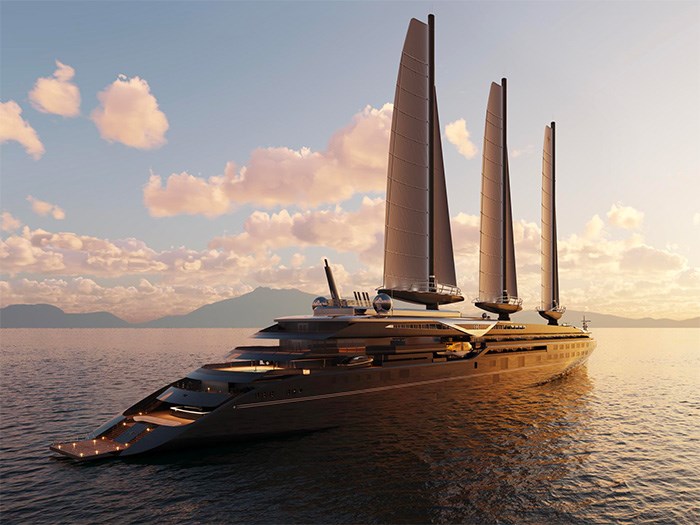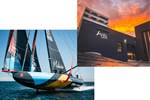Chantiers de l’Atlantique receives first initial orders for SolidSail
Chantiers de l’Atlantique equips its first sailing cargo ship and two upcoming cruise ships with its highly rigid, foldable carbon fiber SolidSail rig.

Orient Express Silenseas cruise liner. Photo Credit: Chantiers de l’Atlantique
A few orders have recently been confirmed for the all-composite SolidSail, designed and developed by France-based Chantiers de l’Atlantique (Saint-Nazaire). The shipbuilder has signed a letter of intent with hotel group Accor (Issy-les-Moulineaux, France) for the construction of two large sailing ships. SolidSail will also be used to propel Neoline’s (Nantes, France) first sailing cargo ship.
SolidSail, a highly rigid, high-performance carbon fiber foldable sail and mast, will be the main propulsion system for Neoline’s 136-meter-long cargo vessel. It will consist of two 76-meter masts and a sail area of 3,000 square meters. Its use on the cargo ship is said to portend a wider application use for SolidSail rigs beyond the cruising sector.
Accor’s order will be confirmed within the next few weeks. The first ship, the Orient Express Silenseas — a reference to the legendary Normandy liner built by Chantiers de l'Atlantique in the 1930s — will be delivered in March 2026. The delivery of the second ship is scheduled for Sept. 1, 2027.
Orient Express Silenseas will be what is reported to be the world’s largest sailing ship (at 220 meters long) and the most advanced cruise ship in terms of environmental friendliness. The ship will comprise three 1,500-square-meter SolidSails 100 meters high. The ship’s hybrid propulsion system will combine wind power with an engine running on liquefied natural gas (LNG).
In terms of luxury, Orient Express Silenseas passengers will enjoy fifty suites — spread over four decks — a double spiral staircase, a swimming corridor suspended between two bridges, a 550-square-meter spa, a marina, two restaurants, a lounge bar, a cabaret theater or even a recording studio.
Related Content
-
Cryo-compressed hydrogen, the best solution for storage and refueling stations?
Cryomotive’s CRYOGAS solution claims the highest storage density, lowest refueling cost and widest operating range without H2 losses while using one-fifth the carbon fiber required in compressed gas tanks.
-
Natural fiber composites: Growing to fit sustainability needs
Led by global and industry-wide sustainability goals, commercial interest in flax and hemp fiber-reinforced composites grows into higher-performance, higher-volume applications.
-
Bio-based acrylonitrile for carbon fiber manufacture
The quest for a sustainable source of acrylonitrile for carbon fiber manufacture has made the leap from the lab to the market.















